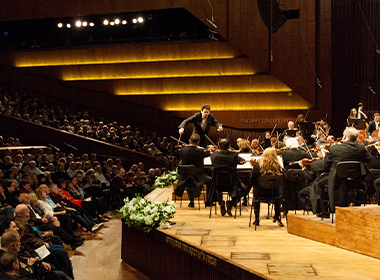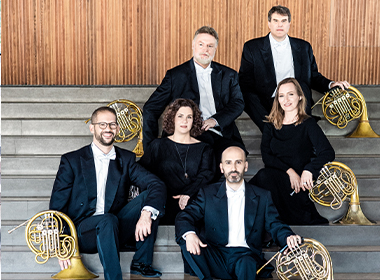Lahav Shani, the IPO’s Music Director Designate is coming to conduct two concerts only.
This program is connected by association to the IPO, and at the center is the world premiere of ”All is a Mirror” by Josef Bardanashvili. Bardanashvili combines poetic texts from a poem by Shakespeare and Miron Izakson: ”had I not been created, you would not have come”; a Georgian folk song: ”In every village there are two roads, the land is in the middle and around it is the sea”; a quote from Masekhet Ktuvot (the “Oral Torah”): ”the one who dies out of laughter is fortunate, the one who dies from crying is unlucky”; and prayer books from the Japanese Perfect Freedom Church: ”Everything is a Mirror” and of the Zoroastrian faith (Maestro Mehta is among its followers): ”Let peace settle the dispute.” The composer dedicates the work to the Maestro and invites him to contemplate the course of his own life as he hears the singing of mezzo-soprano Tea Demurishvili. Demurishvili brings qualities of Azucena (from Verdi’s Il Travotore) to Bardanashvili‘s work.
Mozart composed his last three symphonies (nos. 39, 40 and 41) in six weeks only, in the summer of 1788. He wrote very few works in a minor key and this work reflects a gloomy and restless mood. Seemingly, Symphony No. 40 is ear-pleasing and flowing with unceasing beautiful themes, yet strong emotions are expressed in its concentration of musical material, its unusual harmonies and polyphonic combinations.
This symphony is one of Mozart‘s few works that reveal a surprising and amazing facet of the composer regarding the intensity and depth of his emotional expression, for his works usually brim with gaiety, lyricism and optimism.
Upon hearing Brahms‘ Symphony No. 2, critics of the time described ”a beautiful landscape lit by the sublime and melancholic glow of the sunset…” Others heard, in the third movement, Brahm’s nod to Beethoven’s “Pastoral” Symphony. The speed with which Brahms composed this work amazed everyone at the time—and still amazes us today. As if the lid of a champagne bottle was removed as Brahms was writing his first symphony, a blockage was released, allowing all his power and creativity for orchestral writing to pour onto the page. One notices his exceptional control of the orchestral sound and his ability to create a sequence of musical clues connecting one movement to the next. This symphony holds a special place in the hearts of the IPO: it was the first symphony that the orchestra played in its first ever concert under the baton of Arturo Toscanini. Fun to remember.








 Back to top
Back to top




